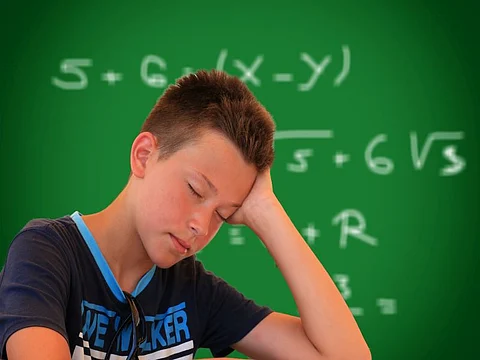MONDAY, Oct. 1, 2018 (HealthDay News) -- High school students who get too little sleep are more likely than others to use drugs, drink alcohol or attempt suicide, U.S. researchers warn.
And while teenagers need eight to 10 hours of sleep nightly, only 30 percent of students report getting that amount, according to survey data collected by the U.S. Centers for Disease Control and Prevention.
"Those reporting fewer hours of sleep were significantly more likely to report each type of risk-taking behavior that was studied," said Matthew Weaver, lead researcher on the new report. He's an epidemiologist at Brigham and Women's Hospital's division of sleep and circadian disorders, in Boston.
Compared to eight-hour-a-night sleepers, those who averaged less than six hours a night were twice as likely to say they had smoked cigarettes, used alcohol, marijuana or other drugs, or had driven after drinking. They were also three times more likely to consider or attempt suicide, and almost twice as likely to carry a weapon or to fight, the researchers found.
"Many of these behaviors are common precursors to accidents and suicides, which are the leading causes of death for teens in the U.S.," added Weaver.
The findings are based on an analysis of 2007-2015 data from the CDC's Youth Risk Behavior Surveys. Nearly 68,000 high schoolers were involved in all. About 6 in 10 were white, and they attended public and private schools.
The researchers found that less than one-third of the students were getting eight or more hours of sleep on weeknights. Twenty-two percent said they logged about six hours daily, while about 18 percent reported less than six hours of sleep on average.
Weaver cautioned, however, that while the survey suggests "an association between sleep and these behaviors," it cannot prove cause and effect. It's possible that kids who engage in risky behavior may undermine the quantity and quality of their sleep, rather than the other way around, he said.
Also, because the information was self-reported, it might not be completely reliable.
Nevertheless, Weaver said it's critical to ensure that teens get enough sleep.
"Insufficient sleep in youth raises multiple public health concerns, including mental health, substance abuse, and motor vehicle crashes," he said. He added that more research is needed to determine the specific relationships between sleep and these behaviors.
Parents can help, Weaver noted. Be aware of what time homework and other activities must end so kids can get eight to 10 hours in bed.
"Limiting the use of [electronic] devices at night can also be helpful. These activities are engaging and tend to lead to later bedtimes," he added.
The study findings appear in a letter to the editor in the Oct. 1 issue of JAMA Pediatrics.
Dr. Nathaniel Watson is a professor of neurology at the University of Washington Medicine Sleep Center in Seattle.
"The single best way to address this problem is to delay school start times," said Watson, past president of the American Academy of Sleep Medicine.
"Adolescent physiology is such that bedtimes before 11 p.m. can be difficult," he said. "So later school start times allow a bedtime of 11 p.m., and at least eight hours of sleep."
Watson advised parents to attend school board meetings to push for later school start times. Starting at 8:30 a.m. or after would benefit student health and well-being, he added.
More information
There's more on teens and sleep at the U.S. National Institutes of Health.



